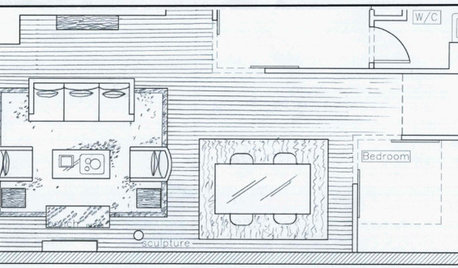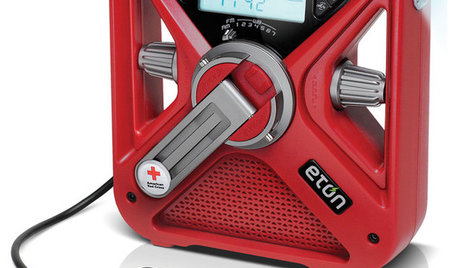This is reprinted from my subscription to:
http://www.scambusters.org /The #1 Publication on Internet Fraud
By Audri and Jim Lanford
Issue #172 March 29, 2006
Credit Card Scam #1:
We've gotten a LOT of questions lately asking us whether or
not the following credit card scam is a hoax:
WARNING... New Credit Card Scam.
This one is pretty slick since the crooks provide YOU with all
the information, except the one piece they want.
Note, the callers do not ask for your card number; they
already have it. This information is worth reading. By
understanding how the VISA & MasterCard Telephone Credit Card
Scam works, you'll be better prepared to protect yourself.
Here's a story passed along by a concerned citizen:
One of our employees was called on Wednesday from "VISA", and
I was called on Thursday from "MasterCard".
The scam works like this: Person calling says, "This is
(name), and I'm calling from the Security and Fraud Department
at VISA. My Badge number is 12460. Your card has been flagged
for an unusual purchase pattern, and I'm calling to verify.
This would be on your VISA card which was issued by (name of
bank).
"Did you purchase an Anti-Telemarketing Device for $497.99 from
a Marketing company based in Arizona?"
When you say "No", the caller continues with, "Then we will be
issuing a credit to your account. This is a company we have
been watching and the charges range from $297 to $497, just
under the $500 purchase pattern that flags most cards. Before
your next statement, the credit will be sent to (gives you
your address), is that correct?"
You say "yes". The caller continues - "I will be starting a
Fraud investigation. If you have any questions, you should
call the 1-800 number listed on the back of your card
(1-800-VISA) and ask for Security.
You will need to refer to this Control Number. The caller then
gives you a 6 digit number. "Do you need me to read it again?"
Here's the IMPORTANT part on how the scam works. The caller
then says, "I need to verify you are in possession of your
card". He'll ask you to turn your card over and look for some
numbers. There are 7 numbers; the first 4 are part of your
card number, the next 3 are the security Numbers that verify
you are the possessor of the card. These are the numbers you
sometimes use to make Internet purchases to prove you have the
card. The caller will ask you to read the 3 numbers to him.
After you tell the caller the 3 numbers, he'll say, "That is
correct, I just needed to verify that the card has not been
lost or stolen, and that you still have your card. Do you have
any other questions?" After you say No, the caller then thanks
you and states, "Don't hesitate to call back if you do," and
hangs up.
You actually say very little, and they never ask for or tell
you the Card number. But after we were called on Wednesday, we
called back within 20 minutes to ask a question. Are we glad
we did! The REAL VISA Security Department told us it was a
scam and in the last 15 minutes a new purchase of $497.99 was
charged to our card.
Long story made short - we made a real fraud report and closed
the VISA account. VISA is reissuing us a new number. What the
scammers want is the 3-digit PIN number on the back of the
card. Don't give it to them. Instead, tell them you'll call
VISA or MasterCard directly for verification of their
conversation.
The real VISA told us that they will never ask for anything on
the card as they already know the information since they
issued the card! If you give the scammers your 3 Digit PIN
Number, you think you're receiving a credit. However, by the
time you get your statement you'll see charges for purchases
you didn't make, and by then it's almost too late and/or more
difficult to actually file a fraud report.
What makes this more remarkable is that on Thursday, I got a
call from a "Jason Richardson of MasterCard" with a
word-for-word repeat of the VISA scam. This time I didn't let
him finish. I hung up!
We filed a police report, as instructed by VISA. The police
said they are taking several of these reports daily! They also
urged us to tell everybody we know that this scam is
happening.
--- End email ---
Answer: This is most likely a real credit card scam. We have
a good number of subscribers tell us they have received these
calls.
In addition, this credit card scam is neither difficult nor
expensive for a scammer to execute (although they couldn't do
it too often without running into trouble with their merchant
account).
The biggest red flag is the last sentence, though: we do not
recommend you tell everyone you know (especially by sending
emails). These requests that you tell everyone you know about
something are almost always signs of hoaxes.
Action: Never give any info about your personal credit card or
other financial information out to people who call you. If
you have a question, you should call the phone number on the
back of your credit card directly.
Credit Card Scam \#2:
Here is a common scam targeting people with imperfect credit
histories we thought you should know about...
This scam also begins with a phone call. The caller tells you
that you've been pre\-approved for a credit card. The credit
limit varies from call to call, but the caller usually quotes
a credit limit of around $5,000.
The caller says that this is a perfect way to begin rebuilding
your credit and since you have less\-than\-ideal credit, this
is the perfect opportunity. To sweeten the deal, sometimes the
caller says that in addition to receiving your pre\-approved
credit card, you'll also receive a free computer.
Here's the reality: The scammer simply wants to get some
information from you \-\- the routing number for your bank and
your checking or savings account number.
Why do they want this information? They say it's to process
the one\-time fee (which ranges anywhere from $250 to $400).
Unfortunately, many people are falling victim to this scam.
They give the caller their bank account information. The money
gets withdrawn from their bank account and that's where the
nightmare begins.
Some callers aren't receiving anything at all for the money
that's been taken out of their bank accounts. Others are
receiving a package via UPS.
What's in the package? An application for a pre\-paid credit
card and a service agreement for a computer that will cost
them about $800!
So where's the credit card with the $5,000 credit limit and
the free computer?
It doesn't exist.
To make matters worse, the victims suddenly start seeing
unauthorized transactions being posted to their account and
some have even had problems with identity theft.
Actions: First and foremost, don't ever give your personal
information (such as bank account numbers and birth dates)
over the phone to someone who calls you asking for it.
Second, never, ever apply for a credit card that you have to
pay for up front. While it's not uncommon to have to pay an
annual fee for a credit card (especially if you have tarnished
credit), the annual fee should be charged to the credit
account AFTER you receive the credit card. It shouldn't be
paid for up front with your bank account.
That's it for today \-\- hope you have a great week.













marie26
dreamgardenOriginal Author
Related Discussions
Reclaiming funds from my brkn eBay chairs-PayPal or Credit card?
Q
Debit card scammed
Q
Suspicious Purchase on Credit Card
Q
Credit Card Fraud
Q
cynic
dadoes
dreamgardenOriginal Author
dadoes
dreamgardenOriginal Author
dadoes
costumecarol
dreamgardenOriginal Author
dreamgardenOriginal Author
dadoes